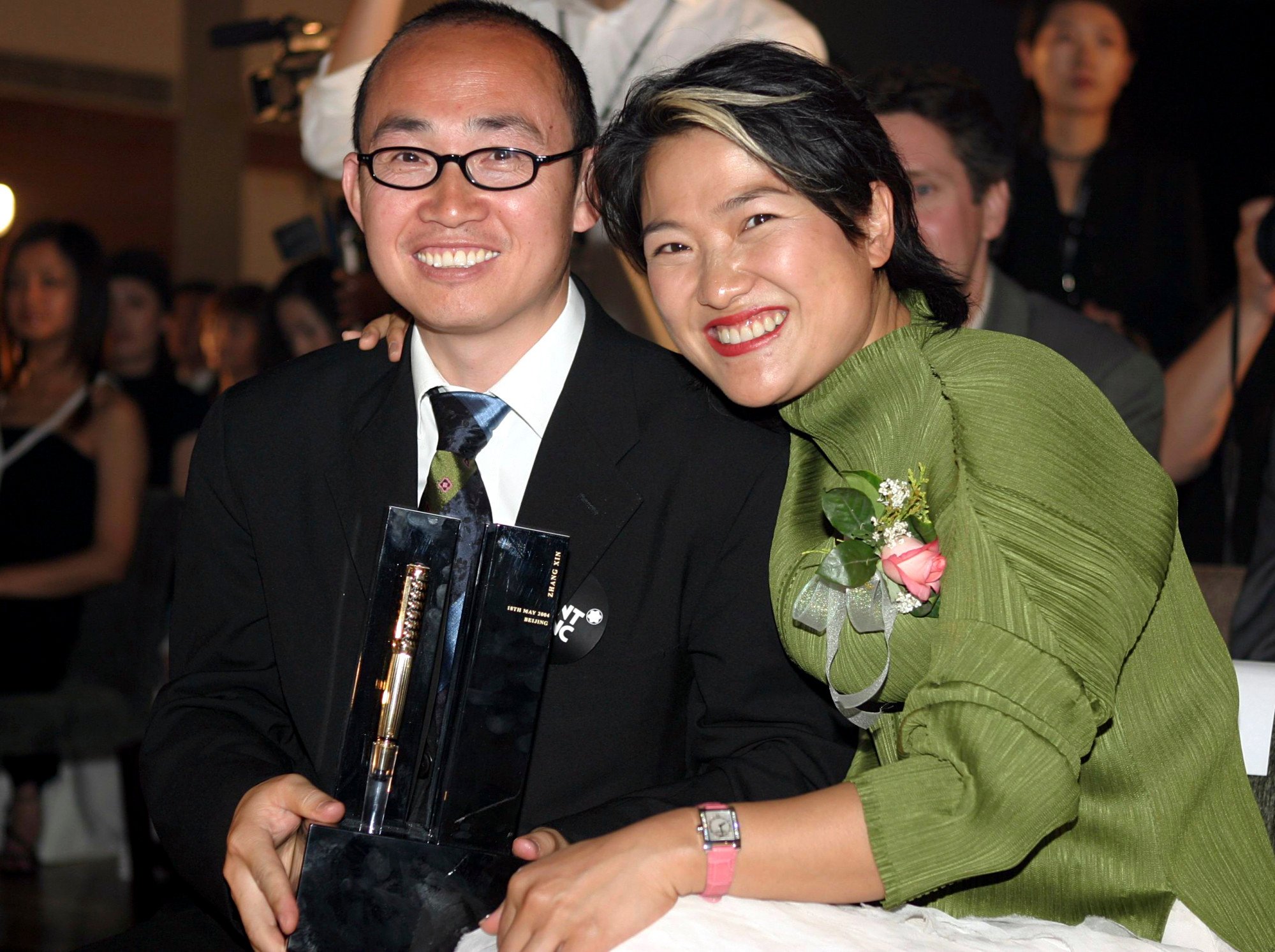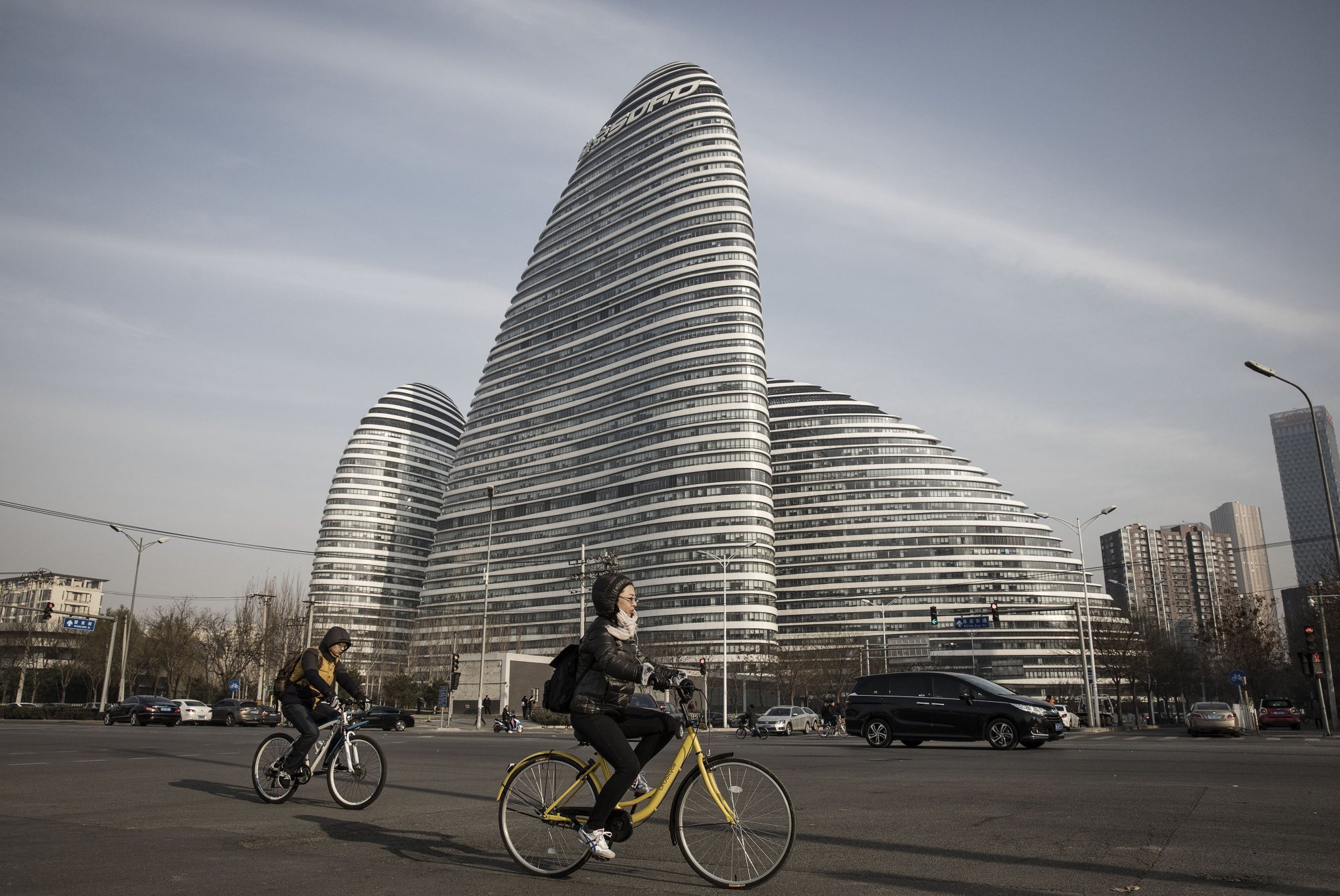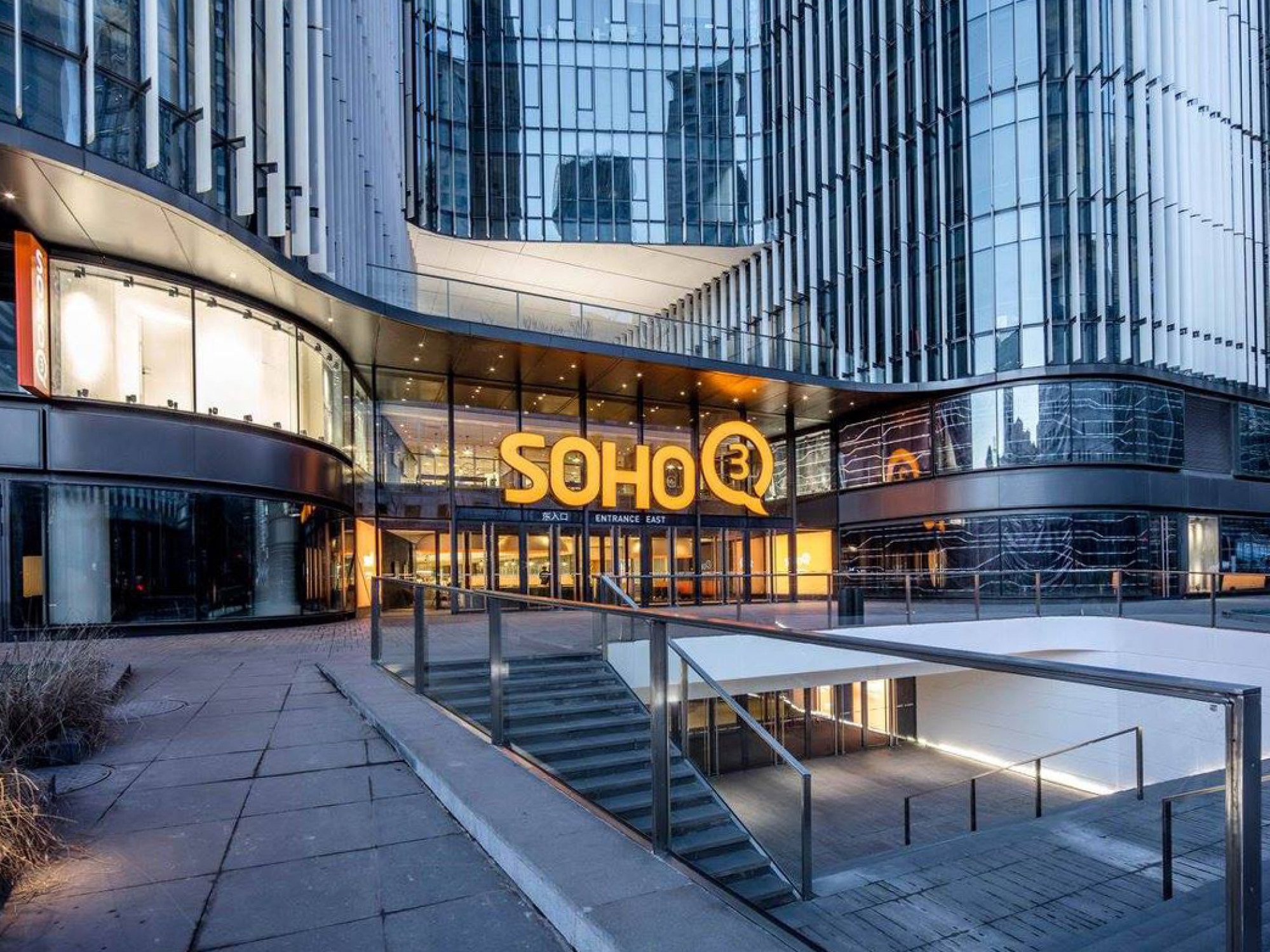
Soho China’s billionaire founders relinquish top roles to pursue philanthropy after failed bid to sell company
- Pan Shiyi stepped down as chairman while his wife Zhang Xin gave up the CEO post to pursue arts and philanthropy. Both will remain as executive directors
- The retreat follows a slump in China’s property market and controversy after the Blackstone Group walked away from a takeover offer last year
The founders of Soho China, whose projects give Beijing its futuristic skyline, are stepping down from key positions in the group to pursue interests in philanthropy and arts, joining other top executives in boardroom and management retreat.
The property investment group said Pan Shiyi has resigned as chairman while Zhang Xin quit as chief executive with effect from September 7, according to a stock exchange filing on Wednesday. The husband and wife will remain as executive directors of the entity they built from scratch in 1995.
Pan and Zhang resigned to “focus on supporting the arts and philanthropic pursuits”, according to the filing. The couple established a charity, Soho China Foundation, in 2005 to support underprivileged families through various education initiatives.
Soho China named Huang Jingsheng as non-executive chairman, and promoted company veterans Xu Jin and Qian Ting as co-chief executive officers.

The changes at the top follow failed attempts since 2020 by the founders to sell their controlling stake to the Blackstone Group. The US private equity giant walked away from a transaction last September that valued Soho China at HK$5 per share or US$3.3 billion. The aborted deal triggered a probe involving its chief financial officer for possible insider trading.
Soho China climbed 11 per cent to HK$1.51 on Wednesday’s announcement, giving it a market value of HK$11.6 billion (US$1.47 billion). Still, the stock has lost almost two-thirds since June last year, as China’s property market crisis and Covid-19 lockdowns unfolded, weakening prices for commercial properties and undermining the broader economy.

While Soho China has kept its balance sheet lean, the gloom has infected the industry as a whole since Beijing introduced the “three red lines” policy to curb excessive debt among the nation’s weakest developers. An ensuing liquidity squeeze has pushed more than 20 of them into an existential crisis, with more than US$20 billion in debt defaults as of June this year.
The group’s co-CEOs are no newcomers. Xu, 50, joined the company in February 2001 and has managed its asset and property management, human resources and procurement functions. Qian, 45, joined in October 2002 and was director of leasing before the promotion.

Zhang was born in Beijing in 1965 and migrated to Hong Kong at 14. She studied at Cambridge and worked as a Wall Street investment banker at Goldman Sachs, and at the Traveler Group before it was acquired by Citigroup, according to Forbes.
They built Soho China into one of the country’s major developers of mixed-use residential and commercial property. Its portfolio of assets includes the Leeza Soho, designed by the famed architect Zaha Hadid, and other office buildings that have pierced the Beijing and Shanghai skylines.
Pan and Zhang were spotted at the US Open tennis tournament last year and are said to be spending most of their time in the US these days. They bought a 40 per cent stake in the General Motors building in Manhattan in 2013 with the Brazilian banking magnate Moise Safra, according to media reports.

